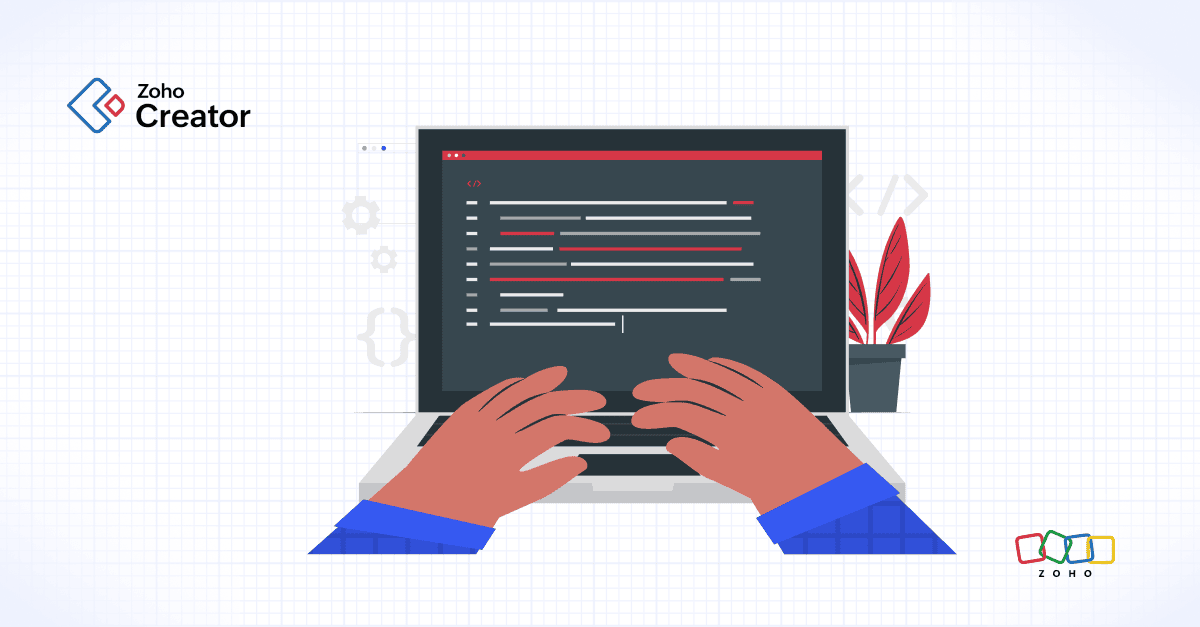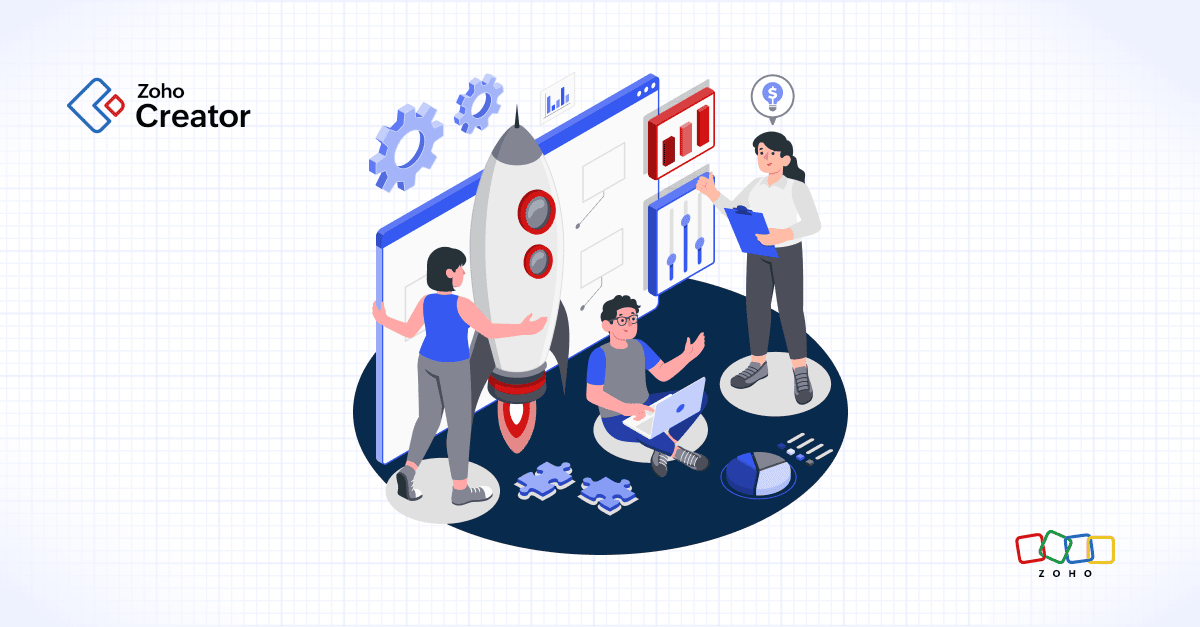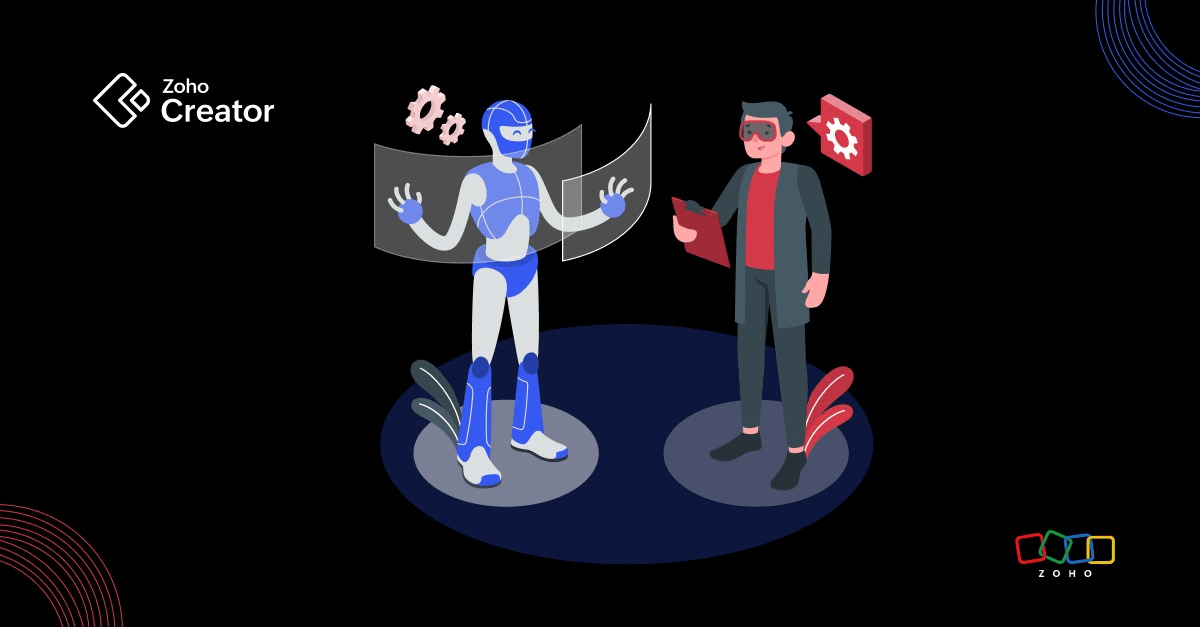- HOME
- Know Your Tech
- The different types of developers: A concise guide
The different types of developers: A concise guide
- Last Updated : December 4, 2025
- 3.6K Views
- 6 Min Read
Advancements in technology have brought about a sea change in the types of people who can build applications. Just a few years back, only highly specialized engineers were able to create software. This was because software engineering was a complex endeavor that required deep technical expertise.
Highlights
- Developers work across multiple specializations including front-end, back-end, mobile, full-stack, and low-code.
Each type uses different tools, frameworks, and skill sets tailored to specific project needs.
Low-code developers are rising as businesses seek faster, cost-effective delivery.
The right developer type depends on your app’s complexity, platform, and scalability needs.
Modern development often requires cross-functional collaboration rather than isolated roles.
Fast-forward to today, where anyone with any level of programming knowledge can be developing full-fledged applications. Software engineering can still be a complex endeavor in certain scenarios, but, today, people with a lower level of technical expertise can create enterprise-grade applications for a large variety of domains.
Starting from your typical, traditional developer to today's non-traditional line-of-business-user, there are several different types of developers, based on their expertise and experience, in the various sectors of software development.
The different types of developers
Some of the different types of software developers are:
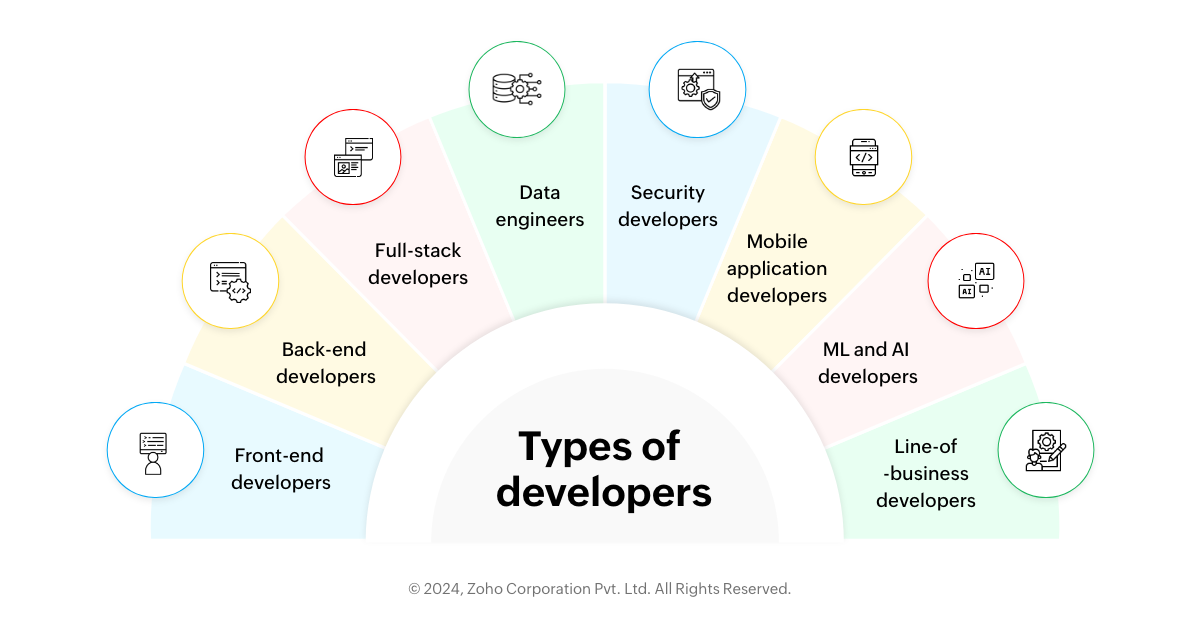
1. Front-end software developers
The front end is the user-facing part of the application or software, be it a web or mobile app. The front-end developer's task is to design a user-friendly UI development for the application, often incorporating guidelines like Material Design to ensure a consistent and intuitive user experience. An ideal user interface should be easy for the customers to navigate and free of clutter.
Languages used by front-end developers include JavaScript, HTML, and CSS.
Frameworks used by front-end software developers include React, AngularJS, and Vue.js, which are some popular JavaScript-based frameworks.
2. Back-end software developers
The back end is the server side of the application in the entire process. It constitutes the logic—the brains—behind a web or mobile app and consists of the databases, server tech, and other software infrastructure frameworks.
The implementation of the back end is abstracted away from the user. Back-end developers use languages like Java, Python, Ruby, and the Node.js framework, as well as development frameworks like Ruby on Rails (RoR) and Django. They may also utilize cloud platforms like Google Cloud to host and manage their server-side infrastructure.
3. Full-stack software developers
A stack in programming means a collection of:
- Database management for storing, retrieving, and modifying information
- Front-end language
- Back-end language
Full-stack frameworks usually contain a variant of JavaScript (a commonly used programming language) libraries, such as Express.js, Node.js, Vue.js, or AngularJS. Most frameworks have MongoDB as their back-end database tech. SQL is another database language.
Some examples of full-stack frameworks are:
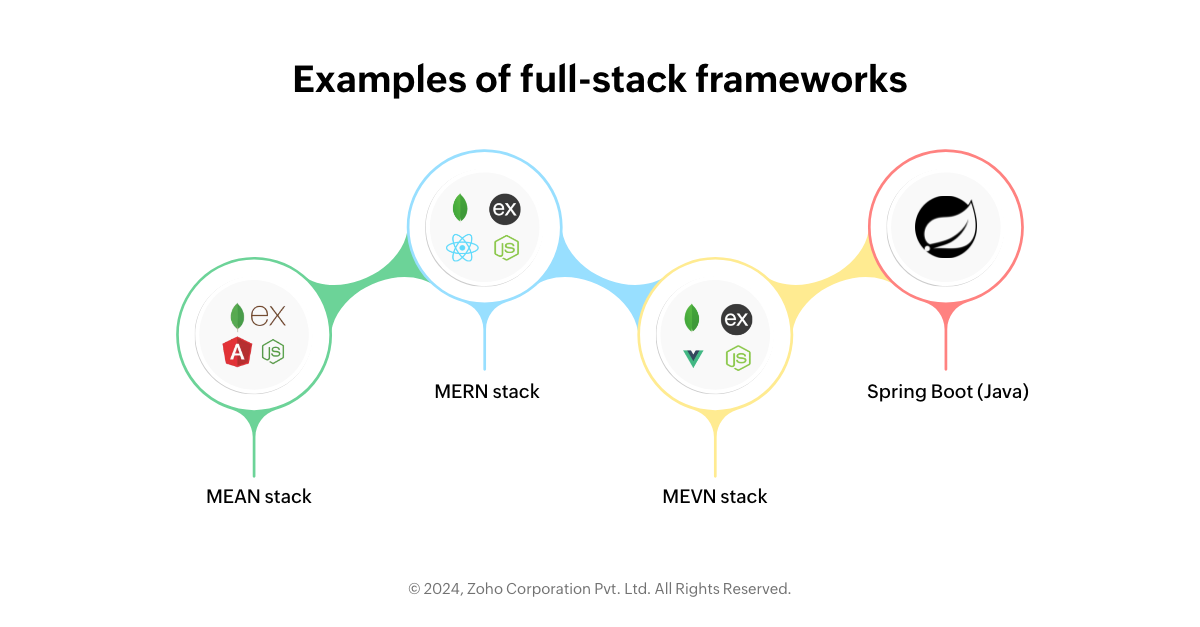
A. MEAN stack
- MongoDB
- Express.js
- AngularJS
- Node.js
B. MERN stack
- MongoDB
- Express.js
- React
- Node.js
C. MEVN stack
- MongoDB
- Express.js
- Vue.js
- Node.js
D. Spring Boot (Java)
A broad range Java-based framework.
Based upon the choice of framework, a full-stack software developer can architect software, leveraging it for their customers' requirements. Full stack developers are well versed in one or more of the programming stacks mentioned above.
Front-end, back-end, and full stack developers are people who work primarily on web-based applications. Besides these three, there are other types of developers, such as data engineers, security developers, machine learning and AI engineers, and mobile application developers.
4. Data engineers
The growth of the web and software has resulted in the generation and accumulation of large swathes of data from operations being carried out. Data engineers sift through and process these large data sets, aiming to derive actionable insights and perform speculative analysis. They process raw, unfiltered data into actionable information. From this actionable information, predictive insights can be gleaned by data engineers, and customer behavior can be understood.
5. Security developers
Protecting confidential customer/stakeholder data is crucial. Data breaches can lead to enormous losses, including loss of privacy. To deter and mitigate this, security developers are tasked with identifying vulnerabilities in applications. It's their duty to ensure that the applications developed have stringent security mechanisms in place and are safe from malicious attempts intended to compromise sensitive stakeholder data structures. Security developers validate that the code base is secure and free from exploits and vulnerabilities.
6. Mobile application developers
Since the dawn of smartphones, the mobile application industry, earlier restricted to a small smattering of applications, has now mushroomed into gigantic application marketplace repositories, as seen in the case of the Apple App Store and Android Play Store. Mobile application developers engineer iOS and Android apps—delivery app, fitness app, communicating app, social media app, utility app, productivity app—a suite of smartphones, tablets, and other Android devices.
Some of the technologies used by mobile application developers are:
- Swift Package Manager and Objective-C, in the case of Apple Watch and iOS.
- Android, Android Studio, Java, Jetpack Compose, Kotlin, Android JetPack, and Firebase for Android device operating systems.
Mobile application development is in high demand today because almost everyone has mobile devices in their hands, powered by the mobile applications built on the above platforms.
7. Machine learning (ML) and artificial intelligence (AI) developers
Machine learning developers empower machines with the ability to learn from experience and improve continuously. Employers prefer developers to be proficient in statistics and linear algebra, machine learning developers use languages such as Python and frameworks such as TensorFlow, PyTorch, and scikit-learn.
AI developers, on the other hand, focus on granting computers the ability to mimic human intelligence and solve problems independently without human assistance. Building upon the skills needed for ML, AI developers work on platforms specific to AI software.
ML and AI developers are also in high demand today, with large language models (LLMs) like ChatGPT, Gemini API, and Perplexity AI ruling the roost with generative AI.
So, we've now seen the different categories of application developers in vogue today. However, there's one special, unique category of developers we still haven't discussed: the line-of-business developer.
8. Line-of-business developers
The line-of-business developer has no knowledge of computer programming or software engineering. They don't know how to engineer functional software, and their technical experience and expertise are also limited.
However, unlike the full stack, back-end, and front-end developers, these types of developers can be a domain or subject matter expert in their respective industries. They can have sharp business acumen and be experts in their field.
With their limited technical expertise, the line-of-business developer can contribute little to the actual development and engineering of complex software. However, it's their domain expertise that differentiates them from the other types of developers.
Expectations from the line-of-business developer
The line-of-business developer shouldn't be expected to directly develop software. Instead, they should assist tech-savvy developers in developing software through their domain expertise.
They provide input, right from the initial requirements-gathering phase till the software is deployed, and even contribute to software maintenance after deployment, by assessing the software's performance and suggesting feature improvements.
How do the line-of-business developers go about developing apps?
The line-of-business developer can't code. So, is there a way they can still develop applications? Yes.
There are solutions that allow codeless app development—no code/low code platforms. This software offers the ability to create applications without extensive coding in a specific programming language or going the full stack-development route.
But how is app development done without coding?
A drag-and-drop interface allows line-of-business developers to translate business requirements into functional applications, simply by dragging and dropping the desired application components onto a canvas. Compared to conventional software development, low-code/no-code platforms have a short learning curve and require only a browser, an internet connection, and a subscription to the platform to be accessed.
Line-of-business developers also have domain experience. Leveraging this, they can architect software applications all by themselves, using the visual development approach—modern toolkits—provided by no-code/low-code platforms. This reduces the dependence of line-of-business developers on conventional developers, resulting in a win-win solution for both line-of-business teams and IT teams.
The future of software development is now
Different technologies mandate different developers to engineer applications. While application development was a complex endeavor a short time ago, with technological advancements like no-code/low-code platforms, today, even users without prior programming experience or expertise can develop full-fledged enterprise grade applications on their own.
This reduces the burden on the IT teams of organizations, who can now focus on more challenging tasks, and simultaneously empower line-of-business users to create applications for everyday business operations easily, all by themselves.
 Prasanna Venkatesh
Prasanna VenkateshPrasanna Venkatesh is a Marketing Analyst at Zoho, for the low-code platform Creator. His work experience spans Marketing, Software Engineering, QA, and Customer Support.

